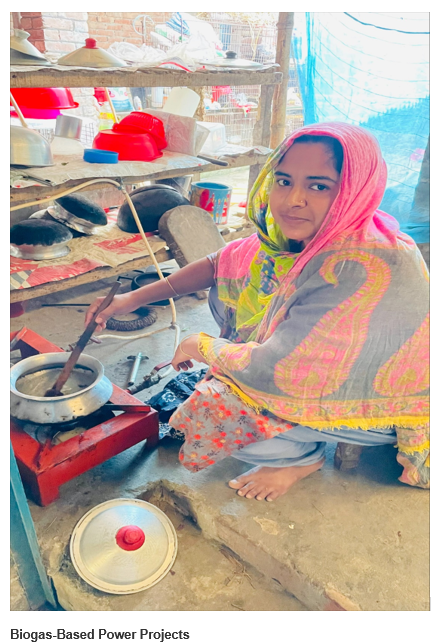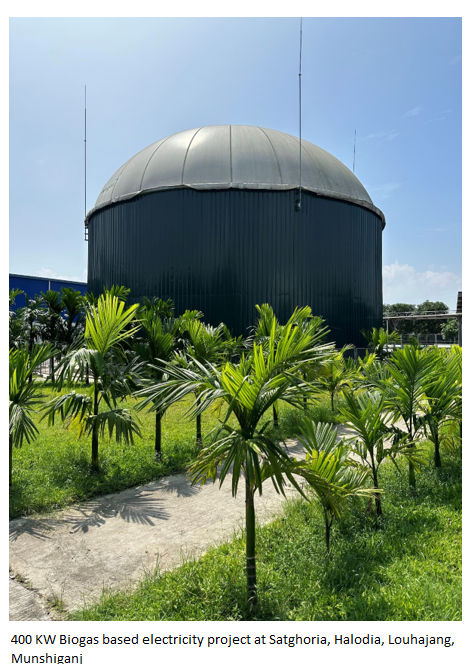
Bangladesh is a country with high potential in dissemination of biogas technology. Majority of households in Bangladesh use traditional biomass fuels such as fuel wood, dung, and agricultural residues for cooking in low-efficiency stoves. Based on survey of Bangladesh Bureau of Statistics (BBS), about 952,000 households own more than 5 heads of cattle which indicates a market for approximately 1 million biogas plants. Realizing the potential of this segment, IDCOL has been implementing its Biogas & Bio-fertilizer Program for households in Bangladesh since 2006 with support from the World Bank, KfW Development Bank and SNV Netherlands Development Organization. IDCOL has registered the program as a CDM project under UNFCCC.
IDCOL has been implementing biogas program in Bangladesh since 2006 with support from KfW Development Bank, the World Bank and SNV Netherlands Development Organization. Biogas plants not only provide gas for cooking purposes but also produce organic fertilizer for the crops and fish pond. The program helps reduce the use of biomass fuel for cooking. Till December 2023, IDCOL has financed construction of over 68,000 biogas plants all over the country through its partner organizations.
IDCOL finances plants with daily gas production capacity ranging from 1.2 m³ to 25.0 m³ thereby meeting demand of both domestic households and mid-sized dairy and poultry farms. IDCOL currently finances two models of biogas plants: brick-cement based plants and prefabricated biodigester based plants.
The program saves 65,000 tons of firewood every year worth BDT 45 Crore and reduces the use of 58,000 tons of chemical fertilizer worth BDT 112 Crore by producing 400,000 tons of organic fertilizer. The program also reduces 260,000-ton CO2 consumption per annum.


IDCOL finances commercial biogas-based electricity projects by providing poultry and dairy farms with up to 80% of the project cost as long-term concessionary loan. Such projects allow these farms to comply with the environmental compliance requirement of installing biogas plants while using the generated electricity for self-consumption. Since 2006, IDCOL has financed installations of 10 large-scale biogas projects. The capacity of each of these biogas systems ranges from 10 kW to 400 kW. These projects involve production of biogas as an end-product of anaerobic digestion, a process through which energy stored in organic matter is converted into biogas. The produced gas is then used in industries or manufacturing plants for running machinery or for generating electricity. Through this process, the carbon emitting fuel is replaced with cleaner sources of energy. Implementation of such projects also reduce potential environmental hazards resulting from improper disposal of poultry, dairy and agricultural wastes. By producing electricity from poultry litter/cow-dung, biogas-based power projects reduce dependency on fossil fuel and provide opportunities for saving electricity bills and diesel consumption.


